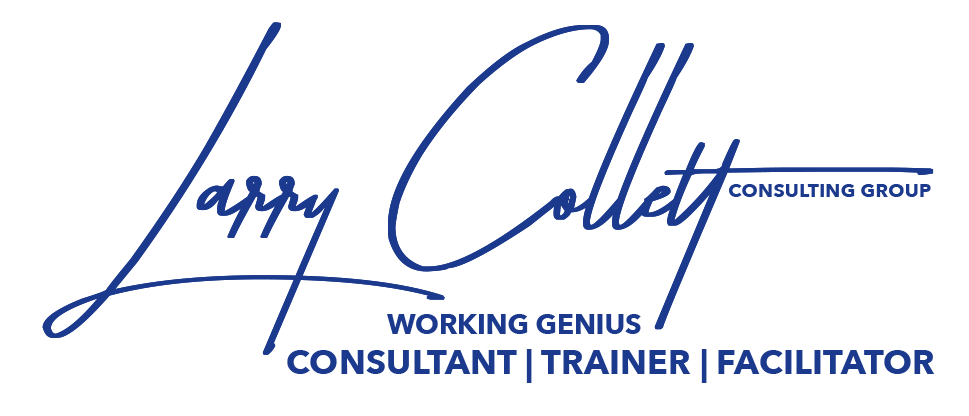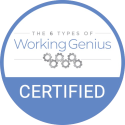Setting Clear Goals for Growth
Defining Specific Objectives
To set clear goals for growth, it is essential to define specific objectives that are measurable and achievable. Instead of vague aspirations, break down your overarching goals into actionable steps with defined metrics. This clarity will provide a roadmap for your professional development.
Aligning Goals with Your Vision
Ensure that the goals you set are in alignment with your long-term vision and career objectives. By establishing this connection, you can create a sense of purpose and direction in your professional growth journey. Your goals should reflect where you want to be in the future.
Setting Realistic Timelines
Setting clear goals for growth also involves establishing realistic timelines for achieving milestones. Consider the resources and time available to you, and create a timeline that challenges you but is also attainable. This approach will help you track your progress effectively and stay motivated along the way.
Identifying Opportunities for Learning and Development
Finding Growth Opportunities in Current Role
One key aspect of advancing professional development is to seek opportunities for learning and growth within your current role. Look for tasks or projects that push you outside of your comfort zone, allowing you to develop new skills and gain valuable experience. Take on additional responsibilities or volunteer for cross-functional projects to expand your knowledge and expertise.
Building a Network for Development
Networking plays a crucial role in identifying opportunities for learning and development. Cultivate relationships with colleagues, mentors, and industry peers who can offer insights, advice, and support for your career growth. Attend industry events, conferences, and workshops to connect with professionals who can provide valuable learning experiences and opportunities for advancement.
Seeking Feedback and Self-Reflection
Engaging in continuous feedback and self-reflection is essential for personal and professional growth. Request feedback from supervisors, peers, and mentors to identify areas for improvement and development. Reflect on your own strengths and weaknesses, setting goals for improvement and seeking out learning opportunities that align with your career aspirations. Regularly review your progress and adjust your development plan as needed to stay on track.
Utilizing Mentorship and Networking for Career Advancement
Building Strong Mentorship Relationships
Mentorship can be a powerful tool for career advancement. Seek out individuals within your field who have more experience and knowledge than you and ask them to be your mentor. A good mentor can provide guidance, advice, and support as you navigate your professional journey. Make sure to establish clear communication and goals with your mentor to make the most of the relationship.
Expanding Your Network Strategically
Networking is essential for career growth. Attend industry events, conferences, and workshops to connect with professionals in your field. Utilize online platforms like LinkedIn to expand your network further. When networking, focus on building genuine relationships rather than simply collecting contacts. Remember to follow up with connections and maintain those relationships over time.
Utilizing Mentorship and Networking for Advancement
Combining mentorship and networking can amplify your career advancement efforts. Your mentor can introduce you to valuable contacts within their network, opening up new opportunities for growth. Additionally, networking can lead to potential mentors who can offer fresh perspectives and insights. Be proactive in leveraging both mentorship and networking to maximize your professional development.
Developing Key Skills Through Training and Workshops
Hands-On Practical Workshops
Participating in hands-on practical workshops can be an effective way to develop key skills that are essential for professional growth. These workshops provide a structured environment where you can engage directly with industry experts and learn through practical exercises and real-world scenarios. By immersing yourself in these workshops, you can gain valuable insights and techniques that you can immediately apply in your work.
Specialized Training Programs
Enrolling in specialized training programs tailored to your industry or profession can offer targeted skill development opportunities. These programs often have a curriculum designed to address specific challenges and trends within your field, providing you with the latest knowledge and tools needed to excel in your role. By investing in such programs, you can deepen your expertise and stay ahead of the curve in a rapidly changing professional landscape.
Soft Skills Enhancement
While technical skills are crucial for professional success, soft skills play an equally important role in shaping your overall effectiveness in the workplace. Attending workshops focused on communication, leadership, time management, and interpersonal skills can help you enhance your emotional intelligence and interpersonal relationships. Developing strong soft skills can improve your ability to collaborate, lead teams, and navigate complex work environments with confidence.
Maintaining Consistent Progress and Adaptation
Regular Assessment and Reflection
Consistent progress hinges on your ability to regularly assess your current situation, goals, and actions. Take time to reflect on your professional development journey, evaluating what has worked well and what could be improved. Consider keeping a journal or log to track your progress, challenges, and accomplishments. This self-reflection will help you stay focused and make necessary adjustments along the way.
Seeking Continuous Learning Opportunities
To maintain momentum and adaptability in your professional growth, never stop seeking opportunities to learn and grow. Attend workshops, webinars, conferences, or enroll in courses relevant to your field. Stay updated on industry trends, new technologies, or best practices. Embrace a growth mindset that views challenges as opportunities to learn and develop new skills.
Building a Support Network
A strong support network can provide valuable guidance, encouragement, and different perspectives to help you navigate your professional journey. Surround yourself with mentors, colleagues, or peers who can offer advice, share experiences, and challenge your assumptions. Engage in networking events, online communities, or mentorship programs to build connections and tap into diverse sources of support.


